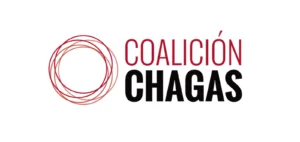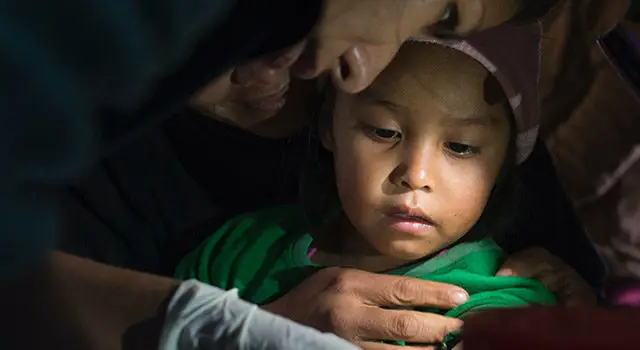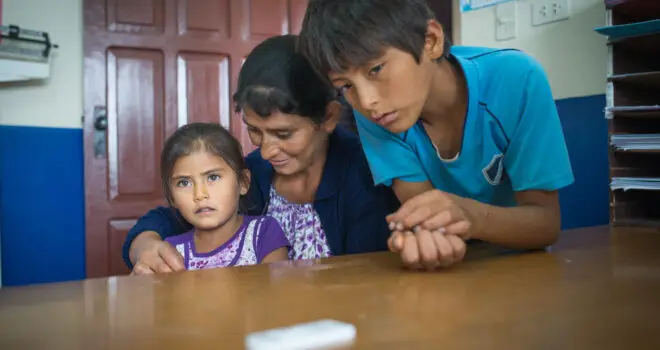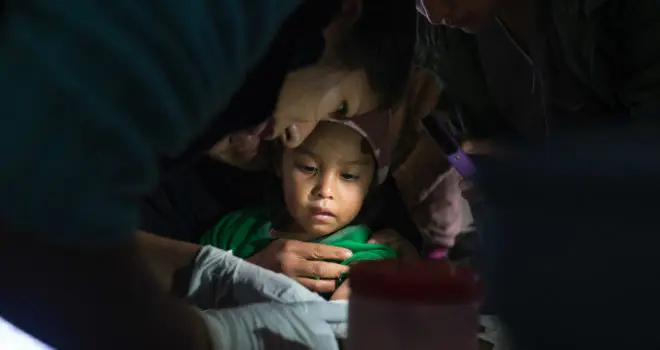On 14 April, World Chagas Disease Day, member organizations of the Global Chagas Coalition are sharing and encouraging the adoption of six commitments to their goal of doing more to help eliminate this disease as a public health problem:
- More access to comprehensive care.
- More investment in Research & Development (R&D).
- More support for surveillance, control, and monitoring of cases.
- More training and awareness-raising for healthcare personnel and communities at risk.
- More strengthening of health systems to ensure that care pathways are fully implemented and that affected people are integrated.
- More visibility and information about Chagas disease at a social level, in different settings.
April 14, 2025. World Chagas Day
Affected countries are committed to controlling this parasitic disease by 2030. Currently, more than 70 million people are at risk and this infection directly affects 7 million people, principally in Latin America, although it is also present in many countries around the world with populations of Latin American origin.
The organizations that make up the Global Chagas Coalition wish to share a manifesto of 6 commitments in which they all work from their different disciplines, such as research, prevention, project implementation or direct care, to support the achievement of the final objective of the elimination of the disease as a public health problem..
Progress. Diagnosis and Treatment. Barriers to healthcare.
Up until now, there has been progress in vector control as well as in the detection of seropositive donors of the T. cruzi parasite in blood banks. There is also a growing interest in integrating Chagas screening and treatment in both women of childbearing age and in routine sexual and reproductive health programs. And there are research initiatives to improve diagnostic and treatment tools, as well as in the control of different forms of transmission and the effectiveness of treatments.
The good news is that we now have diagnostic tests and drugs, but there are huge barriers preventing them from reaching those who need them in time. It is estimated that more than 12,000 people died last year alone. And that’s just an estimate.
Chagas has been the perfect metaphor for being forgotten. And that is why it is a pressing public health problem. The time to provide care is now.
Because now, in the face of the very serious uncertainties and funding cuts in global health and cooperation, it is time to regain strength, adapt plans to new scenarios and reaffirm our commitments. Therefore, the organizations of the Global Chagas Disease Coalition call on governments, donors and interested organizations to join and commit to redouble efforts in the following priority areas:
- To continue improving access to diagnosis, treatment and comprehensive care for people affected by Chagas disease in all its dimensions.
- To encourage investment in research and development (R&D) of new diagnostic and therapeutic tools that will speed up access for the populations that need them, as well as evaluating the progress of treated individuals towards a cure. Currently, investment in R&D for Chagas represents a meagre 0.6% of all investment in R&D for neglected diseases, which is already very small in comparison with global health investment.
- Improve the surveillance and control of the disease, expanding the systems for the mandatory notification of cases of Chagas disease and its clinical complications.
- Strengthen and facilitate access to training and consultation tools for health personnel and affected persons, enabling the provision of up-to-date and higher quality care.
- Stimulate the coordination of all the actors involved in the comprehensive care pathways and guarantee the participation of the people affected and their associations in the design and implementation of strategies adapted to the epidemiological and sociocultural contexts of their communities.
- Continue to support actions to raise awareness as an opportunity to showcase global efforts to reduce the impact of Chagas disease and to promote actions to improve access to comprehensive care.
These commitments, known as the Manifesto of Bogotá, provide a proposal and frame of reference to accompany the struggle of the people and countries affected. We cannot miss the opportunity of this crucial decade to move closer to the elimination of Chagas disease as a public health problem according to the objectives agreed within the framework of the WHO/PAHO. Together we are stronger and we can do more.
A few facts about Chagas:
- Chagas disease affects approximately 7 million people.
- It is endemic in 21 countries in the Americas and is a global health problem.
- In the Americas, Chagas disease has an annual incidence of 30,000 new cases on average, 12,000 deaths per year, and approximately 9,000 newborns are infected during gestation.
- It is estimated that around 75 million people in the world, mainly in the Americas, are at risk of contracting this disease.
- It can be transmitted by the triatomine bug (vector-borne), orally (food & drink-borne), during pregnancy or birth (congenital), through blood/blood products, organ transplantation and laboratory accidents.
- 30% of people with chronic infection develop cardiac alterations and 10% develop digestive, neurological or mixed alterations which will require specific treatment.
- Chagas disease received less than 0.7% of the total investments applied for all neglected diseases.
- 1 million women of childbearing age live with the infection of T.cruzi parasite in Latin America
- Despite the available therapeutic tools, the immense majority of the needed people remain without access to diagnosis and comprehensive healthcare.
The Global Chagas Coalition was founded by organizations from the fields of research and clinical care and the private sector and brings together more than twenty partners and observers from the public sector and affected communities united in their aim of achieving greater access to comprehensive care.
For more information: www.coaliciónchagas.org



